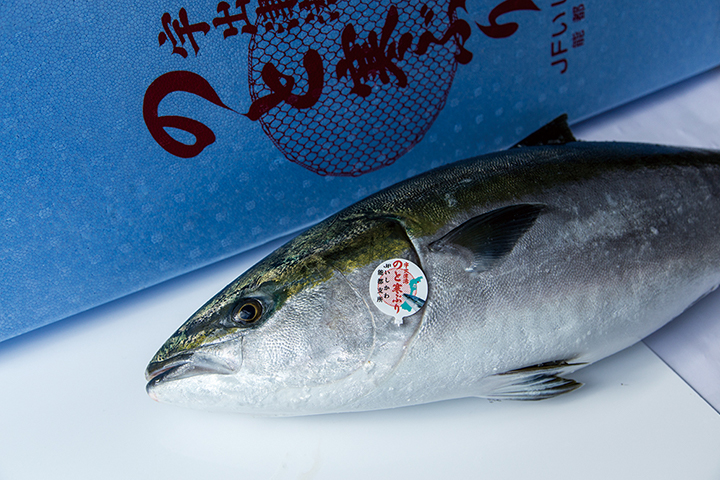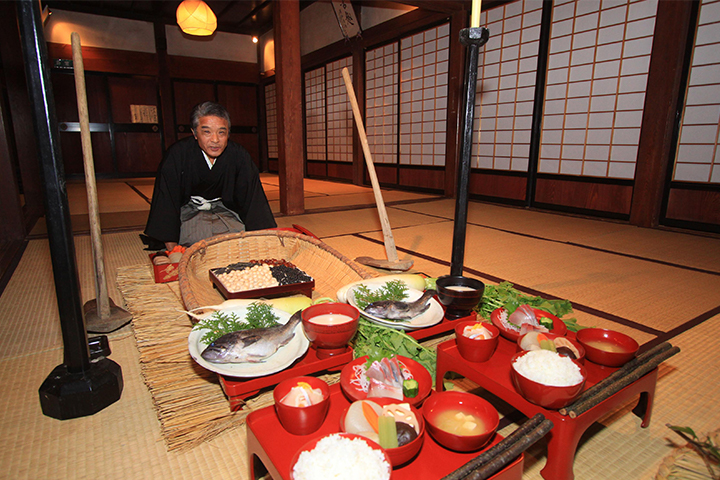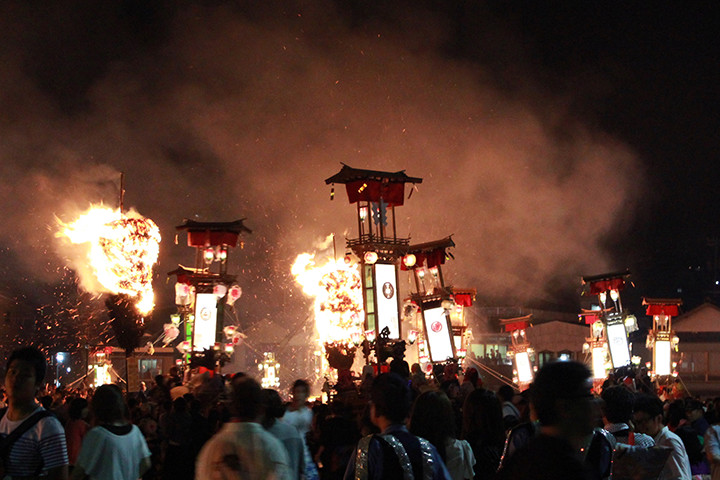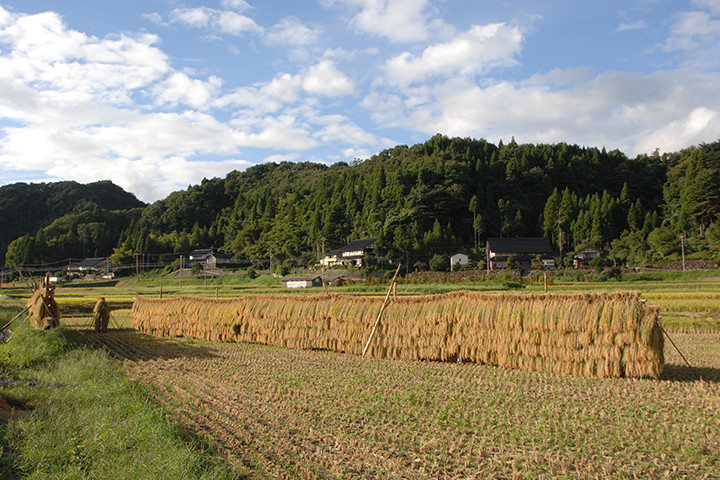Noto, home of deities,
and the Japanese sake culture deeply rooted in the region

Located in Oku-Noto and designated as a Globally Important Agricultural Heritage Site, Noto maintains its agricultural village culture and shrine rituals passed down over more than 1,300 years ago and is said to be a town where deities live. Even today, you can feel the presence of deities in events like Aenokoto, a shrine ritual to pray for the deity of rice fields and harvests, and the lively Abare Festival, which is the highlight of Noto's Kiriko Festival. Noto's satoyama and satoumi remain traditional Japanese landscapes in which man and nature co-exist and a rich food culture nurtured by gifts from the sea and mountains attracts and delights visitors.
Besides that, Noto Town is the hometown of the Noto guild of sake brewers, one of the four top sake brewer guilds in Japan. They have produced so many kinds of renowned sake featuring rich and deep flavors that people nowadays recognize the Noto style as being the best way to produce ginjo sake. The sake produced here matures not only as a result of the rich nature and culture of fresh food, but also the ceaseless endeavors of the brewers' predecessors. People say, "Even the soil of Noto is full of warmth", and in this way, the pure and tenacious nature of the people of Noto shows through in the sake.
We are looking forward to welcoming you with delicious food and sake amid the nostalgic scenery that gives you a feeling of having returned home.
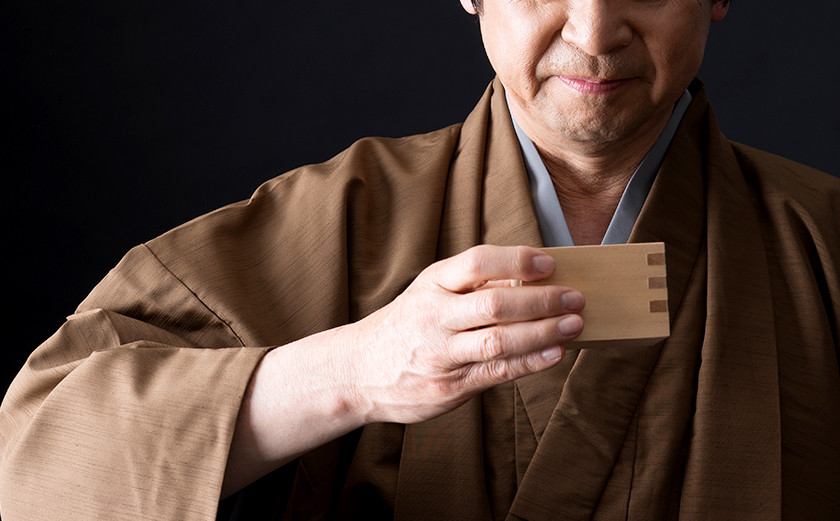
Sake breweries in this region
-
MatsunamishuzoNoto-cho, Hosu-gun, Ishikawa0768-72-0005
-
KazumashuzoNoto-cho, Hosu-gun, Ishikawa0768-62-1200

